What are the tasks of the plant fire brigade?
Lorenz Lessle: The duties of the plant fire brigade are diverse and challenging, which is what makes them so special. We are not "just" a fire brigade – we are specifically tailored to the requirements and structures of Mercedes-Benz and our locations. A central element of our work is prevention. Preventive fire protection, regular training, and realistic deployment exercises ensure that we can act at lightning speed and in a targeted manner in an emergency. Our goal: to be prepared for anything that comes our way. That's why we regularly conduct realistic exercises and training sessions. Our work goes far beyond firefighting: We provide technical assistance, for example, in the event of machine accidents or hazardous material accidents, take over the fire watch service for fire-hazardous work, and provide the fire safety guards at events. In addition, we provide medical first aid to injured people until paramedics or emergency doctors arrive.
What does a typical day at the plant fire brigade look like?
Jürgen Moll: A typical fire brigade day? We don't really have one of those – and that's exactly what makes the job so fascinating. We work in 24-hour shifts, which are divided into working hours, on-call time, and rest periods. When we start our shift, we never know what the day will bring. That's why flexibility is key. In addition to operational readiness, the care and maintenance of our equipment are among the daily tasks. Team spirit, concentration, mental strength, and physical fitness are all essential. That's why we train almost daily, either in a group or individually, to keep ourselves at the top of our game. The great thing about it: Our on-duty sports program not only keeps us fit, but it is also a lot of fun.
How does the security dispatch center support the operations?
Rüdiger Lipp: Our main task is to respond to emergency calls. These range from simple calls to remove an oil spill to complex fire alarms that can result in production downtime. Therefore, it is important to initiate the appropriate measures quickly. We use these questions, among others, to guide us:
- Where is the event?
- Who is calling?
- What happened?
- How many are affected?
At the same time, we record operation-specific data such as the location and the operational keyword in the security dispatch system and then trigger the alarm for the fire brigade or rescue service. Thanks to our experience, we can often assess the situation accurately over the phone and provide initial guidance. As administrators, we work in the background to ensure that the right data and information are available in the system to optimally support the dispatchers.
,xPosition=0,yPosition=0.5)
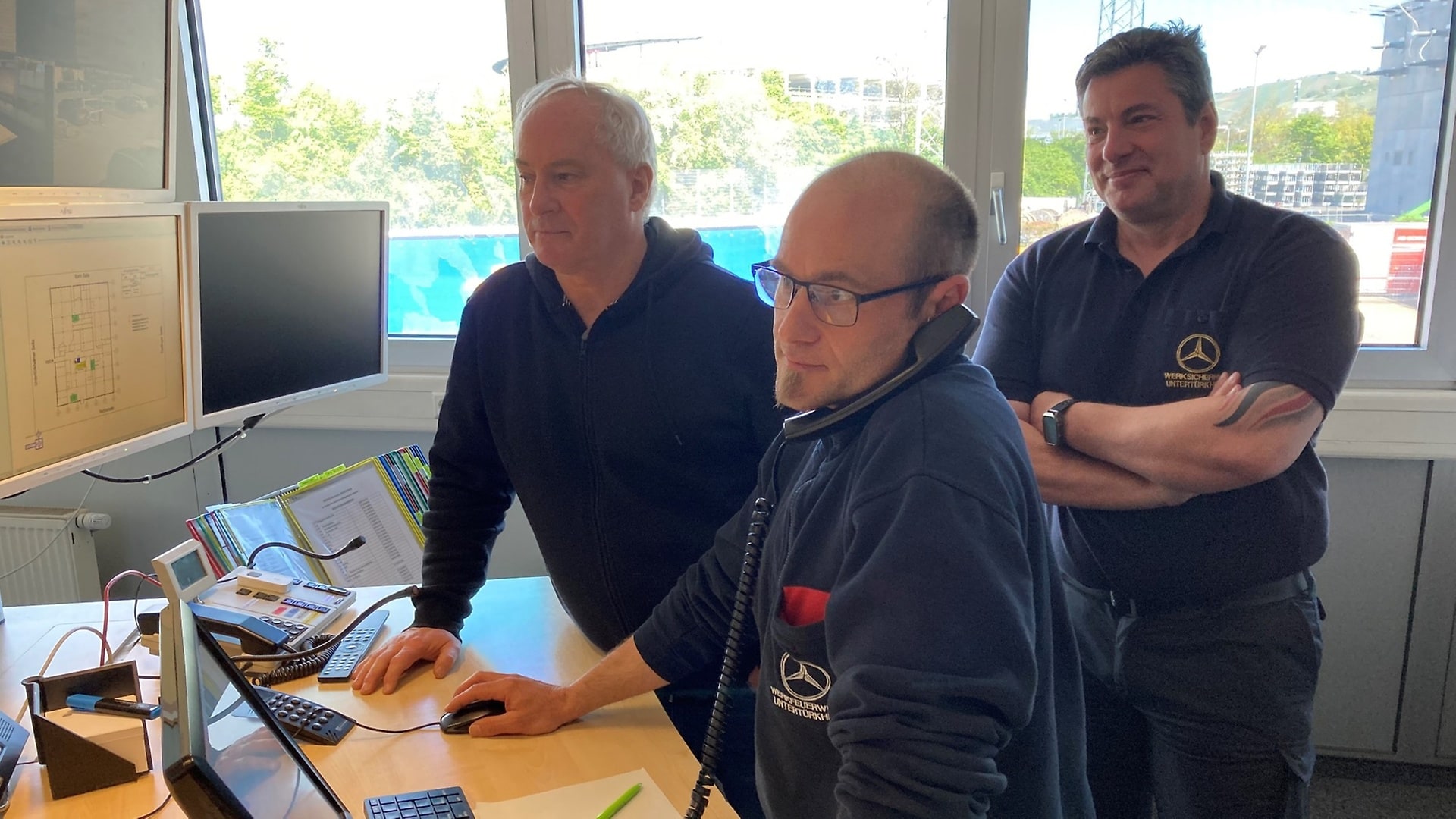
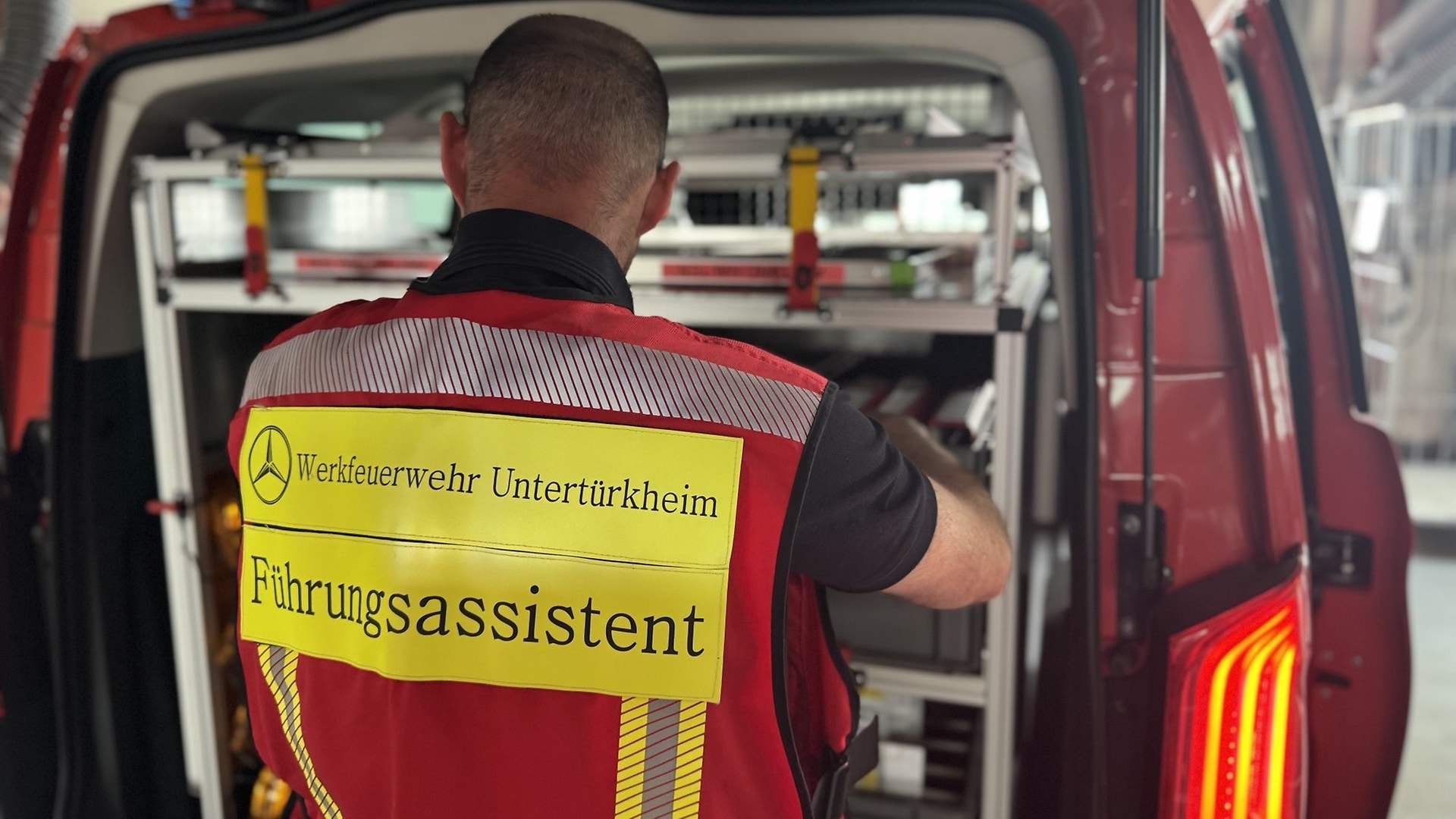
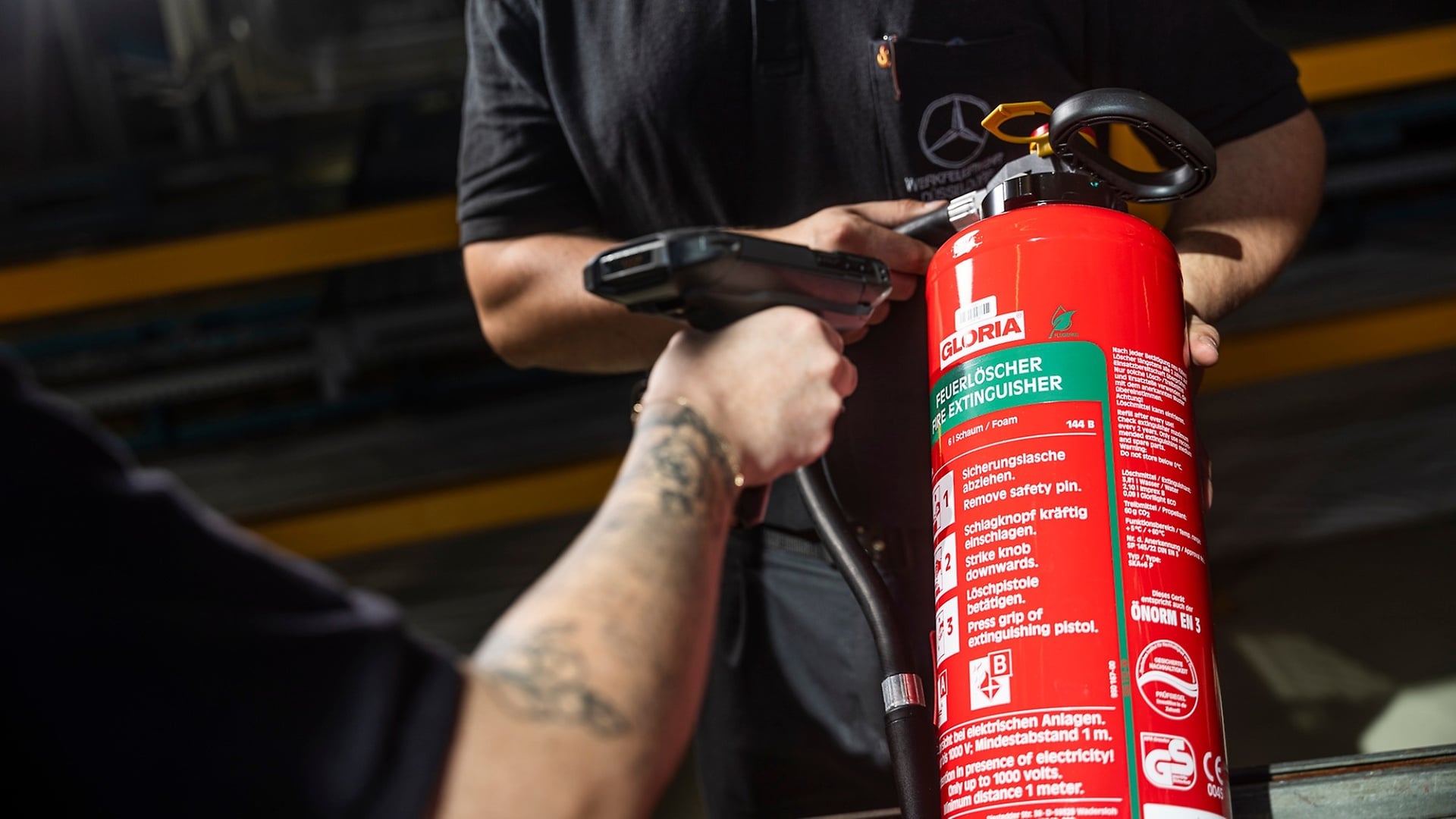
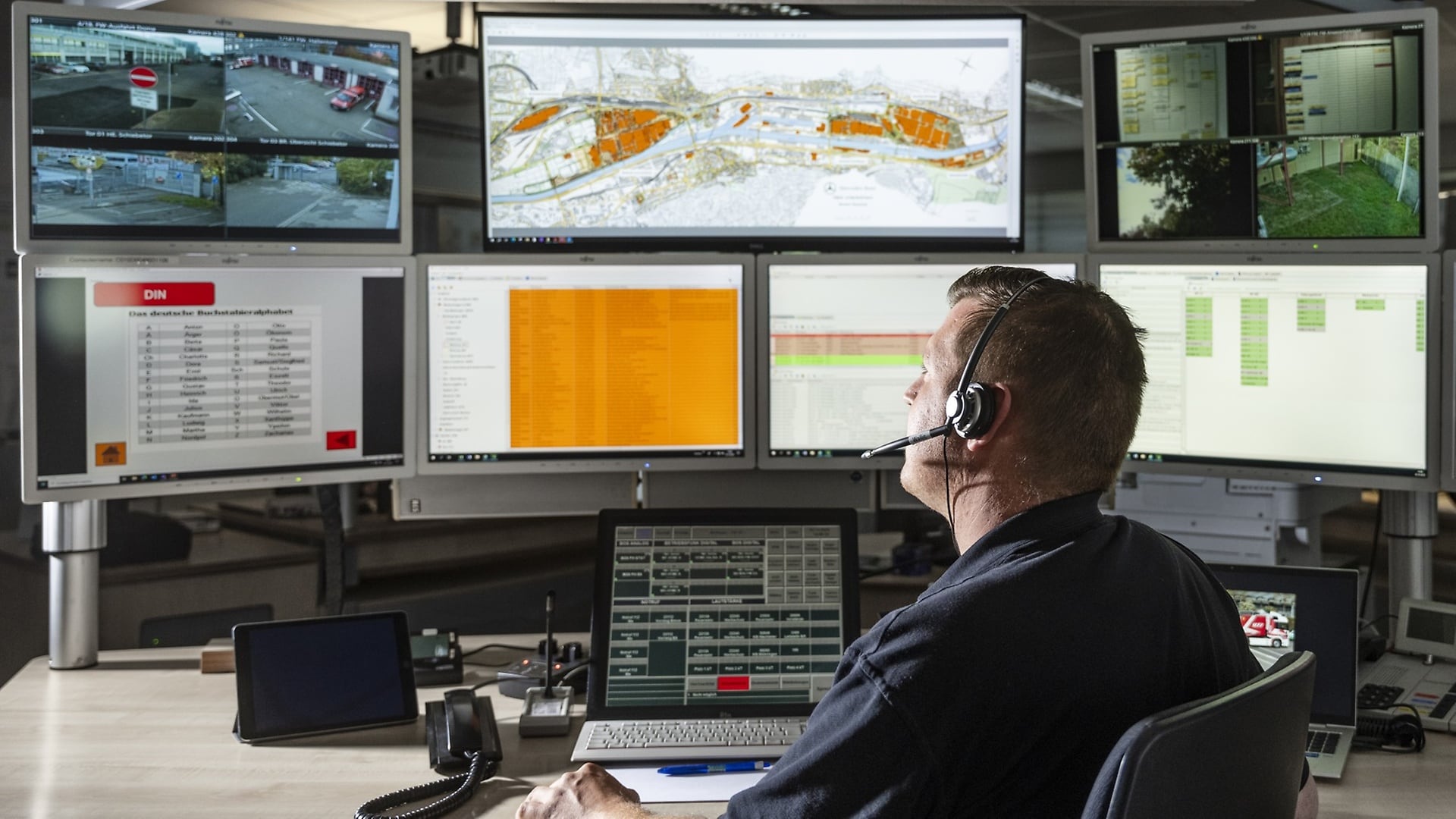
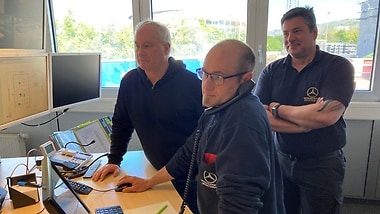
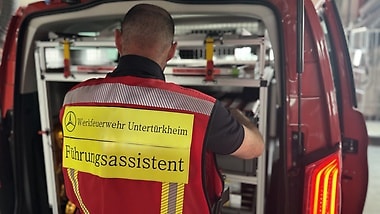
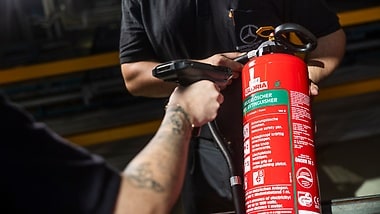
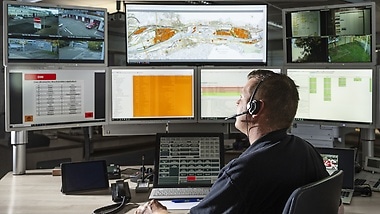
,xPosition=0.5,yPosition=0)